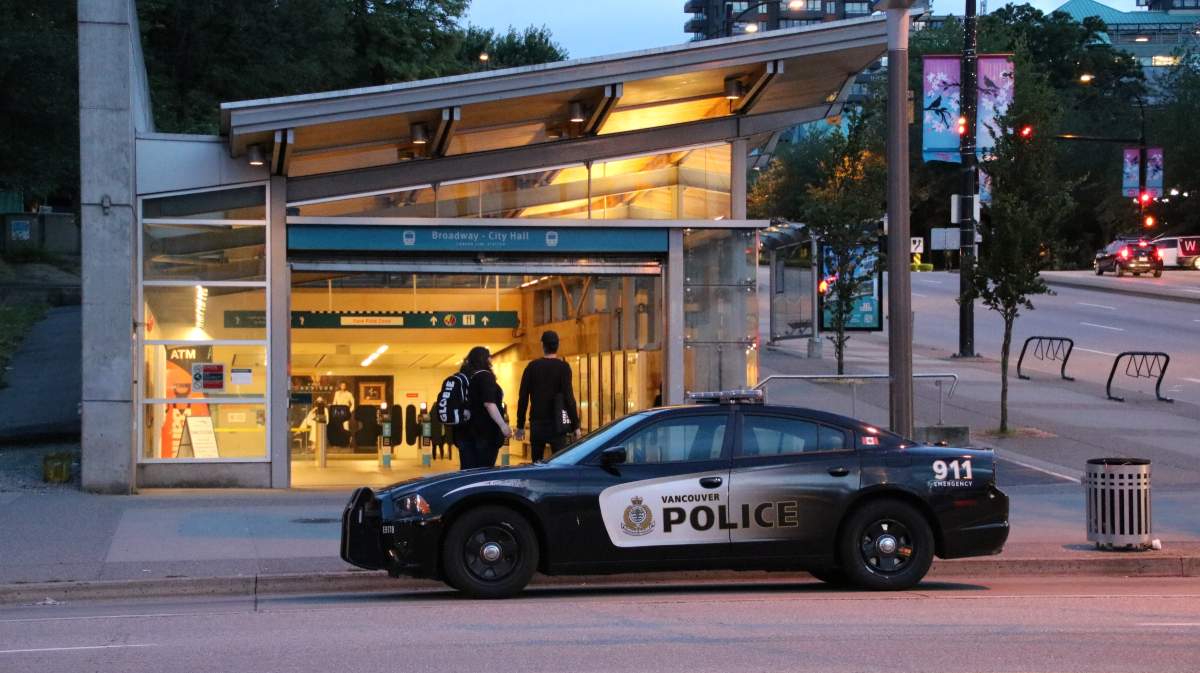Indigenous and civil rights activists are asking B.C.’s police watchdog to add gender into a requested probe of how the Vancouver Police Department (VPD) conducts “street checks.”

Earlier in June, the Union of BC Indian Chiefs and (UBCIC) and the BC Civil Liberties Association (BCCLA) filed a complaint with the Office of the Police Complaints Commissioner (OPCC) over data suggesting Indigenous people were being disproportionately street-checked.
Street checks, or “carding,” refers to the police technique of stopping people when no specific offence is being investigated, questioning them and recording their information.
The data was released by the VPD on its website in response to a Freedom of Information request of unknown origin.
WATCH: Alberta activists call for ban on ‘carding’ or police street checks

That data showed that between 2008 and 2017, 15 per cent of street checks involved Indigenous people, who make up two per cent of the city’s population. Black people accounted for four per cent of carding incidents, but make up one per cent of the population.

Get daily National news
Now, the UBCIC and BCCLA say they have received more data on race and gender through another freedom of information request, which they say raises new concerns.
READ MORE: B.C. premier ‘concerned’ over data showing VPD disproportionately stopped Indigenous people
The new data shows that in 2016, one out of every five women who were the target of a carding stop were Indigenous, according to BCCLA lawyer Josh Paterson.
Paterson argued that the Indigenous experience of carding is emblematic of a larger institutional racism problem in the justice system.
“Because there is an overrepresentation and an over-focus on Indigenous people in front-line policing, that helps produce the overrepresentation that we see in other parts of the criminal justice system,” Paterson said. “That’s was we need to look at.”
WATCH: Gregor Robertson comments on VPD “carding” complaints

The two groups are also amending their complaint to include police stops conducted by the VPD where personal information was collected, but the stop was not recorded as a “street check.” They argue the omission of such stops is potentially skewing official data.
In response to the data, Sgt. Jason Robillard with the Vancouver Police Department said in an email that the “primary purpose for street checks… is for public safety and to prevent crimes. However, “well-being” checks conducted by our officers are also classified/counted as street checks in our statistics.”
“Engaging and interacting with vulnerable people, especially at-risk, Indigenous women in the downtown east side, is a significant priority for the VPD. We know that historical issues have led to increased vulnerability of Indigenous women and girls and that Indigenous women experience higher rates of violent victimization than non-Indigenous women,” he said.
“As such, our officers frequently engage in well-being checks of at-risk women in the downtown east side.”
READ MORE: Alberta government seeks public input on controversial street-check policy
Back in June, VPD Chief Adam Palmer rejected allegations that the force’s carding policy was racially motivated.
“A street check occurs when a police officer encounters someone believed to be involved in criminal activity or a suspicious circumstance, and documents the interaction. They are not random or arbitrary checks,” Palmer said at the time.
“If our officers see potential criminal activity or a threat to public safety, they are bound by law, including the Police Act, to address it. … A person’s race does not factor into an officer’s decision to take action to prevent a crime.”
Vancouver Mayor and Police Board Chair Gregor Robertson has said he would like to see a provincial policy on carding, but cautioned drawing direct links between race and street checks.
Correction: A previous version of this story stated that one in five people carded by the VPD in 2016 were Indigenous women. In fact, one in five women who were carded in 2016 were Indigenous.













Comments